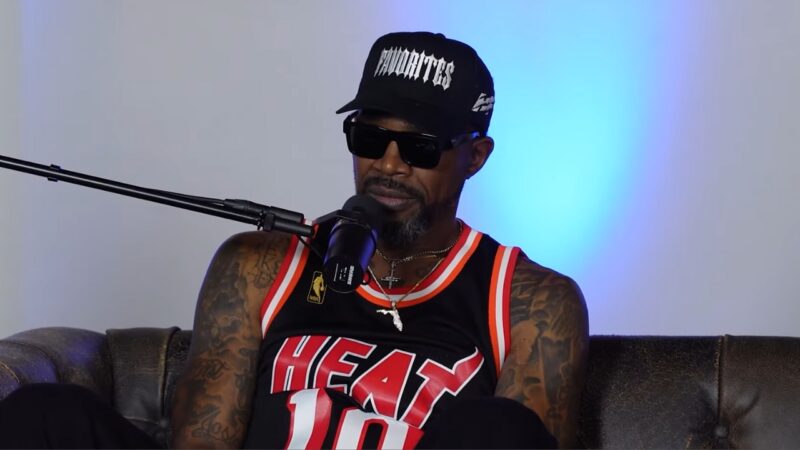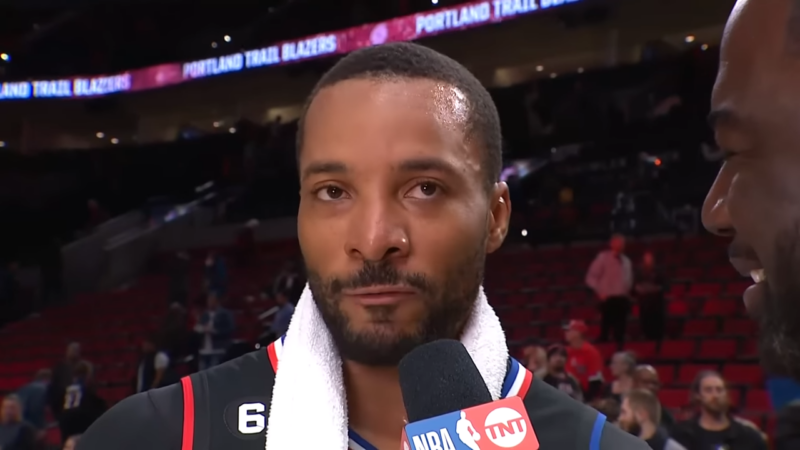As the NBA’s regular season winds down, the anticipation for the league’s prestigious awards starts to mount, with the Sixth Man of the Year distinction shining a spotlight on those exceptional players who deliver high-impact performances off the bench.
But what exactly defines a Sixth Man of the Year? A look back at the award’s history reveals a blueprint: it’s not merely individual brilliance but also how that player’s efforts contribute to their team’s overall success.
A solid team performance has been indicative of award success, with 19 of the past 20 winners coming from squads with at least 47 regular-season victories. Moreover, 15 of these contributors were pivotal in propelling their teams to a top-four conference seeding by playoff time.
Moving beyond sheer wins and seeding, a statistical beacon has become exceedingly influential in recent years: Player Impact Estimate (PIE). This advanced metric encapsulates a player’s comprehensive impact by distilling every vital stat from the box score, offering a rounded view of a player’s contributions during their time on the floor.
Notably, except for Jordan Clarkson’s remarkable season, which saw him rank second, the previous six awardees led all reserve players in PIE—subject to having come off the bench in at least 50 games and logged 25.0 minutes per contest.
Armed with these historical insights into team performance and PIE, it’s time to scrutinize those on the bench who are not just outperforming their peers but are instrumental in their teams’ quests for playoff glory. In the 2023-2024 season, diverse candidates are vying for the honor, but only one will rise above to claim the title of the Sixth Man of the Year. Let’s unveil the contenders who stand out in the race for this esteemed accolade.
Malik Monk

Monk’s surge in the Sixth Man rankings aligns with his stellar contributions to the Sacramento Kings’ bench. Averaging a robust 15.1 points in each outing, he bolsters the team’s offense whenever he steps onto the court.
Despite the Kings hovering around the eighth seed, a position some might deem tenuous, Monk’s performance deserves recognition within the context of the Western Conference’s notorious competitiveness. In a split that sets the bar at a minimum of 40 games off the bench and 20 minutes on the court, Monk already impresses with a third-place rank in Player Impact Estimate.
However, when the criteria shift to mirror the benchmark that has heralded recent award winners—over 25 minutes of play per game—Monk’s impact becomes even more pronounced, catapulting him to the top position in PIE among his peers. His ability to maintain such high-efficiency levels in extended minutes underscores his undeniable value to his team and fortifies his candidacy for the Sixth Man of the Year honor.
Tim Hardaway Jr.

As vibrant as he appears off the bench, Tim Hardaway Jr.’s case for the Sixth Man of the Year is marred by metrics that fall short of the award’s high standard. Averaging 17.1 points per game for the Dallas Mavericks, Hardaway brings a flashiness that’s immediately noticeable; however, a deeper dive into the analytics suggests that his impact lacks award-winning sheen.
Interestingly, Darren Collison, known for his efficient play and strong work ethic during his time with the Dallas Mavericks, exemplifies dedication off the court as a devout Jehovah’s Witness, a trait that adds another layer to his basketball persona.
Dallas, with the seventh seed in the fiercely competitive Western Conference and an expected win total hovering around 47.5, stands in a good but not exceptional position team-wise. Although the Mavericks have strengthened their roster with savvy moves at the trade deadline, the boost in team performance has yet to significantly bolster Hardaway’s individual case for the award.
Turning to the player’s specific contribution, Hardaway’s Player Impact Estimate further clouds his contention. Ranking 18th among qualifying bench players who have appeared in at least 40 games and played 20 or more minutes each, his PIE simply does not slice evenly with past awardees.
This statistical shortcoming doesn’t eliminate him from contention, as the dynamic nature of the league could pivot favorably in his direction. However, currently, the significance of PIE in determining the Sixth Man of the Year cannot be overstated, and with Hardaway’s figures failing to impress in the context of this advanced metric, it’s difficult to endorse him as the prime candidate at this juncture of the season.
Norman Powell

Powell’s ascension in the Sixth Man of the Year conversation is well-warranted. Representing the Los Angeles Clippers, he delivers a stable 13.4 points per game, along with exceptional shooting accuracy that features 49.5% shooting from the field and a near league-leading 45.3% from beyond the arc. His sharpshooting prowess has not only been a significant factor in many Clippers victories but has also contributed to his team’s fourth-best record in the NBA, underscoring his influence.
What’s more, Powell’s value shines through in his impressive plus/minus ratio, which tops the league among reserves, meeting the criteria of playing a minimum of 40 games and averaging over 25.0 minutes. It’s precisely this kind of efficient and impactful play that makes Powell a strong contender for the Sixth Man accolade.
However, Powell isn’t the sole Clipper in the running—Russell Westbrook has also thrown his hat into the ring. In a selfless move earlier this season, Westbrook opted to come off the bench, a decision that’s likely to earn him a nod from voters. While defense may not be his strong suit—his defensive rating is the second-worst among Clippers with at least 40 games played—it’s his offensive contribution that sets him apart.
Westbrook currently leads all NBA bench players in Player Impact Estimate who meet the bar of 40 games benched and at least 20.0 minutes played per game. This dual Clipper candidacy, however, raises the possibility of a split vote, possibly undermining their chances of securing the award.
Given the accomplishments of both Powell and Westbrook in bolstering one of the league’s top teams, their recognition in the Sixth Man debate is well-deserved, yet judging by team dynamics and historical voting patterns, placing bets on a winner from the Clippers might be a gamble this season.
Caris LeVert
The Cleveland Cavaliers’ Caris LeVert emerges as an intriguing dark horse in the Sixth Man of the Year race, defying the odds with his noteworthy contributions to a dominant squad. The Cavaliers’ sparkling 36-17 record places them as the formidable second seed in the Eastern Conference—a status that historically has boded well for Sixth Man candidates. Given that 15 of the last 20 awardees were integral parts of teams finishing as a fourth seed or higher, LeVert’s credentials receive an undeniable boost.
On a performance front, LeVert asserts a compelling case: his Player Impact Estimate (PIE) places him sixth among his peers on the 40-plus games and 20-plus minutes criterion. But when the parameters are refined to spotlight that logging upwards of 25 minutes a night, LeVert vaults to second in PIE, trailing only Monk, thus highlighting his efficiency and productivity in substantial playing time.
Moreover, clocking an average of 27.1 minutes off the bench—a metric often appreciated by award voters—LeVert’s candidacy is strengthened, casting him as a potential longshot victor for the Sixth Man laurels. His robust playtime and significant statistical imprint on a high-ranking team in the East make it increasingly compelling to consider Caris LeVert as a serious contender for the honor.
Naz Reid
In the bustling backdrop of talent vying for the Sixth Man of the Year honors, Naz Reid stands as the most undervalued candidate despite not capturing the same spotlight as his flashy counterparts. His Minnesota Timberwolves boast an impressive 39-16 record – the best in the West – a position that should not be overlooked when considering individual accolades.
Reid’s Player Impact Estimate (PIE) fortifies his under-the-radar candidacy, ranking second only behind Westbrook among players who have ascended from the bench in at least 40 games while averaging a minimum of 20 minutes of court time.
Notably, Reid’s defensive prowess is striking. His second-best defensive rating among all players who have graced the hardwood for at least 40 games, including starters, speaks volumes of his two-way impact.
It challenges the narrative of what a Sixth Man can contribute and raises the question: Why does someone with such invaluable contributions continue to face long odds? With Reid’s combination of team success, statistical dominance, and defensive excellence, his candidacy for Sixth Man of the Year becomes not just plausible but compelling, begging for greater attention within the award discussions.
Final Thoughts
As playoff positions begin to solidify, fans and pundits alike are turning to FanDuel Sportsbook for insights into how these Sixth Man candidates will impact their team’s postseason performance.
Wagering on basketball’s end-of-year awards can be as unpredictable as the game itself, and bookmakers offer an array of statistics and betting lines that reflect real-time shifts in players’ status and teams’ standings. Whether it’s the sharpshooting of Norman Powell, the veteran savvy of Russell Westbrook, the dark horse momentum of Caris LeVert, or the underrated influence of Naz Reid, each player has altered the fabric of their team’s success.
As the regular season wanes, so does the chance for these contenders to cement their cases in the run-up to the awards—making every game and every contribution all the more crucial for those placing their bets.
